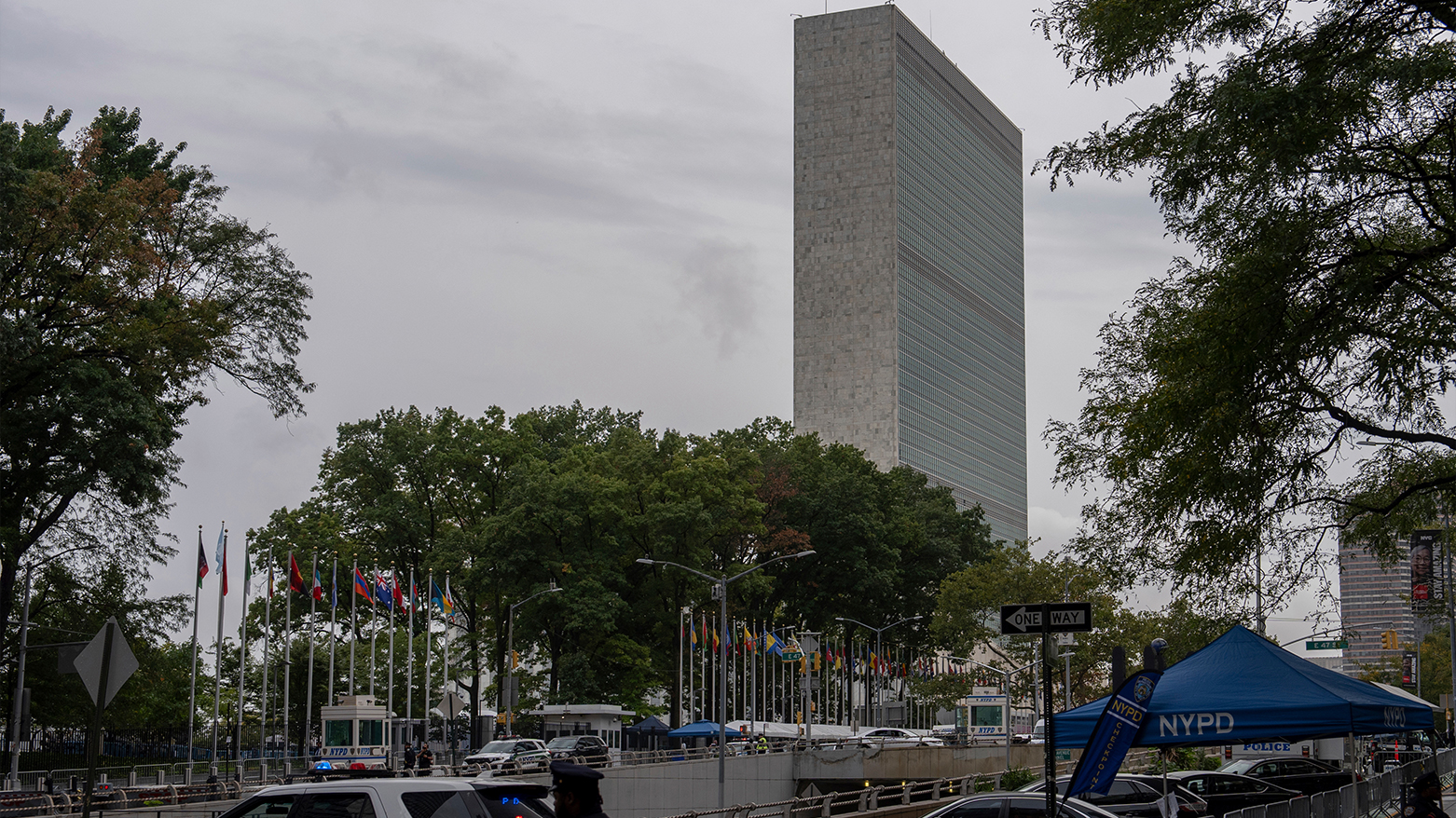U.S. Turns UN General Assembly Into Arena for ‘Maximum Pressure’ on Tehran
The U.S. has imposed "maximum pressure" on Iran's UNGA delegation, restricting their movement in New York and banning them from shopping at wholesale clubs and for luxury goods. The State Department said it will not allow Iranian elites a "shopping spree" while their people suffer.

ERBIL (Kurdistan24) – In a sharply worded and highly symbolic move designed to apply "maximum pressure" on the Iranian regime, the United States on Monday announced it has imposed stringent new restrictions on the movement of Iran's delegation to the United Nations General Assembly, while also barring its members from acquiring items from wholesale club stores and luxury goods retailers.
The U.S. State Department declared that the measures are a direct message of solidarity with the Iranian people, vowing that Washington "will not allow the Iranian regime to allow its clerical elites to have a shopping spree in New York while the Iranian people endure poverty."
The announcement, delivered in a press statement by Principal Deputy Spokesperson Thomas "Tommy" Pigott, details a two-pronged approach that combines physical containment with economic and symbolic constraints. Secretary of State Marco Rubio has restricted the Iranian delegation's movement to only the areas "strictly necessary to transit to and from the UN headquarters district to conduct their official UN business."
This tight geographical cordon is being justified on national security grounds. "The security of Americans is always our priority, and the United States will not allow the Iranian regime to use UNGA as an excuse to travel freely in New York to promote its terrorist agenda," the statement read.
The second and more unusual component of the restrictions is the explicit prohibition on the delegation accessing certain types of commercial establishments.
By preventing Iranian officials from "exploiting diplomatic travel to the UN as a means to obtain goods unavailable to the Iranian public," the State Department said it is "sending a clear message: When the United States says it stands with the people of Iran, we mean it."
The statement framed the actions as an affirmation of the U.S.'s "unwavering commitment to supporting the Iranian people in their pursuit of accountability for the regime and for a better life."
These new restrictions come at a moment of extreme tension and high-stakes diplomacy surrounding Iran.
The UN Security Council voted on Friday to re-impose a raft of international sanctions that had been frozen under the 2015 nuclear deal, after Britain, France, and Germany activated the "snapback" mechanism, accusing Iran of non-compliance. These sanctions are set to take full effect on September 28 unless a last-ditch diplomatic effort in New York this week succeeds.
According to a Reuters report, the foreign ministers of Iran and the three European powers (E3) are scheduled to hold critical talks on Tuesday on the sidelines of the UN General Assembly. However, Western diplomats have told reporters that the chances of a breakthrough remain "slim." The head of the UN's nuclear watchdog, Rafael Grossi, also described the current situation as a "difficult juncture" in an interview with AFP, though he confirmed that dialogue would continue.
The diplomatic standoff is occurring as Iran's domestic political scene is roiled by an intense debate over the country's future.
As previously reported by Kurdistan24, a chorus of prominent reformist activists has been urging Iranian President Masoud Pezeshkian to use his trip to New York to seek full authority from the Supreme Leader to engage in transformative diplomacy, including a potential direct meeting with U.S. President Donald Trump, in order to pull the country back from its perilous international isolation.
The U.S. restrictions also coincide with a significant diplomatic shift among some of Washington's closest allies regarding the Israeli-Palestinian conflict, an issue on which Iran's stance is a central pillar of its foreign policy.
Over the weekend, Britain, Canada, Australia, and France all formally recognized a Palestinian state, a move that has drawn praise in some quarters but has been met with skepticism by many Palestinians on the ground in the West Bank, who doubt it will bring meaningful change to their daily lives. The move was also vehemently rejected by Israel.
The State Department’s decision to impose such specific and targeted restrictions on the Iranian delegation is a clear continuation of the Trump administration's "maximum pressure" campaign.
While the travel restrictions to the immediate vicinity of the UN headquarters are a common tool used by the U.S. as the host nation for diplomats from adversarial countries, the explicit ban on shopping at wholesale clubs and for luxury goods is a novel and pointed tactic. It is designed not only to inconvenience the Iranian officials but also to serve as a powerful piece of public diplomacy aimed directly at the Iranian people.
By highlighting the alleged hypocrisy of a "clerical elite" seeking to enjoy the commercial fruits of a Western city while their own population suffers from "crumbling infrastructure, and dire shortages of water and electricity," the U.S. is attempting to drive a wedge between the Iranian regime and its citizens.
This strategy aligns with the broader U.S. narrative that its sanctions and pressure tactics are not aimed at the Iranian people, but at the government that it accuses of corruption, mismanagement, and sponsorship of terrorism.
The practical impact of the shopping ban may be limited, but its symbolic and political resonance is significant. It turns the routine diplomatic gathering of the UN General Assembly into another front in the escalating confrontation between Washington and Tehran, using the high-profile presence of the Iranian delegation in New York to amplify a message of both containment and solidarity with the Iranian opposition. As Iranian diplomats engage in tense, last-ditch negotiations to avert the full force of international sanctions, they will now do so under the tightest of leashes, both physically and symbolically, imposed by their American hosts.